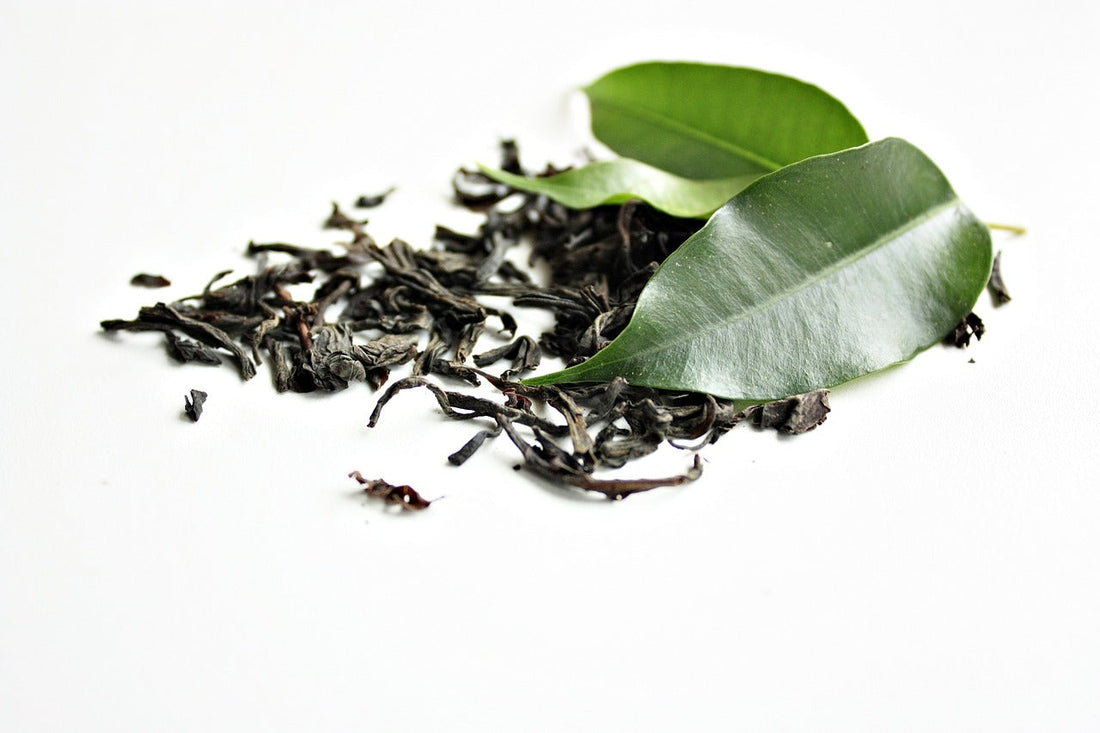L-theanine, a naturally-occurring amino acid, has been known to be a star in the world of wellness that’s primarily found in green tea and some mushrooms. It is known as a relaxation, focus enhancer for cognitive function– begging one to think on how much L-Theanine should be taken in order to make the most of this supplement.
In this article, we’ll discuss everything you need to know about L-theanine, the recommended amounts to take, its safety, and potential interactions.
You can read more about L-Theanine, its benefits, side effects, and more in our articles, Why should you take L-theanine? and How to Take L-Theanine?
What is L-Theanine?
The magic behind L-theanine is its impact on brainwave activity; it has been found to promote production of alpha waves that are related to relaxed alertness.1
Moreover, studies suggest that L-theanine can:
- Combat Anxiety and Stress: By attenuating the adverse effects of caffeine, l-theanine may encourage a feeling of calmness.1
- Boost Sleep Quality: Findings indicate that L-theanine could improve sleep quality and promote relaxation before going to bed.2
- Increase Cognitive Function: Research shows that L-theanine may have beneficial effects on cognitive functions including memory and learning abilities.3
Optimal Dosage of L-Theanine
- Relaxation and Anxiety Reduction
L-theanine dosage of 200-400 mg per day has been shown to promote relaxation and reduce anxiety. According to studies, this dose is capable of producing a state of calmness without inducing sleepiness.
- Cognitive Enhancement
For cognitive enhancement, especially when combined with caffeine, standard dosage is 100mg L-theanine plus 50mg caffeine. People have been found to be more attentive, alert, and have improved memory when taking this particular combination of the supplement.4
- Sleep Improvement
To improve sleep quality, especially in those who experience sleep disturbances, taking 200 mg taken before bedtime may be recommended.5
Important Considerations
Safety
L-Theanine is usually well tolerated and safe for short-term administration, particularly with a daily use of up to 900 mg for periods of up to 8 weeks. However, L-theanine may cause minor side effects when taken long-term. Therefore, be sure to seek a healthcare professional, especially in cases where you are using L-theanine beyond the recommended period of 8 weeks.
Possible Interactions
L-theanine can potentially interact with some prescription and over-the-counter medications, such as those used for blood pressure, some supplements that are known to affect blood pressure, and prescription medications to treat ADHD.
Final Words
Discovering your ideal L-theanine dosage requires exploration. Factors such as the effects you're looking for, how sensitive you are to the supplement, and the form in which you take it, all come into play.
While this guide can be a general starting point, it is still very important that you consult a healthcare professional to get your proper dosage depending on your needs, as well as provide you with further recommendations if you're taking any prescription medications which may potentially interact with this supplement.
References:
- Hidese, S., & Wakabayashi, K. (2015). The effect of L-theanine on chronic anxiety: A randomized, double-blind, placebo-controlled trial. Food Science and Technology Research, 21(3), 583-591. https://pubmed.ncbi.nlm.nih.gov/31623400/.
- Kimura, K., Ota, M., Ozeki, M., & Chiba, S. (2007). L-Theanine reduces sleep onset latency in healthy adults. Nutrition Research, 27(8), 549-554. https://www.ncbi.nlm.nih.gov/pmc/articles/PMC6836118/.
- Cabral, C., & Ryu, D. (2016). L-theanine for cognitive function with a focus on healthy older adults. Current Opinion in Clinical Nutrition and Metabolic Care, 19(6), 505-510. https://pubmed.ncbi.nlm.nih.gov/36557939/.
- Owen, G. N., Parnell, H., De Bruin, E. A., & Rycroft, J. A. (2008). The combined effects of L-theanine and caffeine on cognitive performance and mood. Nutritional Neuroscience, 11(4), 193-198. https://doi.org/10.1179/147683008X301513.
- Lyon, M. R., Kapoor, M. P., & Juneja, L. R. (2011). The effects of L-theanine (Suntheanine®) on objective sleep quality in boys with attention deficit hyperactivity disorder (ADHD): A randomized, double-blind, placebo-controlled clinical trial. Alternative Medicine Review, 16(4), 348-354. https://pubmed.ncbi.nlm.nih.gov/22214254/.
- Yoto, A., Motoki, M., Murao, S., & Yokogoshi, H. (2012). Effects of L-theanine or caffeine intake on changes in blood pressure under physical and psychological stresses. Journal of PHYSIOLOGICAL ANTHROPOLOGY, 31(1). https://doi.org/10.1186/1880-6805-31-28.
- Rao, T. P., Ozeki, M., & Juneja, L. R. (2015). In search of a safe natural sleep aid. Journal of the American College of Nutrition, 34(5), 436–447. https://doi.org/10.1080/07315724.2014.926153.












